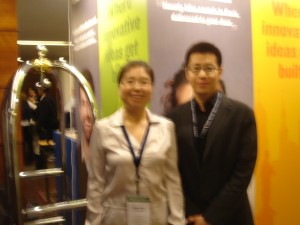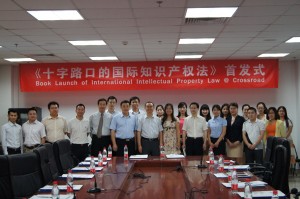Comments on TMCH
New gTLDs: Trademark Clearinghouse (10/09/12) Adopted and Submitted by ALAC
After TMCH Meeting in Brussels on August 20-21, 2012, the problems existing in the current TMCH implementation model have become widely aware in the community. Although TMCH providers is scheduled to begin operating in October (3 weeks from now), ICANN’s planned implementation models for Sunrise and Trademark claims are apparently not supported by a majority of the new gTLD applicants. The current model’s complexity, restrictions on new registries and high costs are widely criticized.
At-Large community concerns that the problems in the current model may be against the public interests for the following reasons.
1. Burdensome Cost Model to New Registries from Developing Countries
On June 1, 2012, ICANN posted a Preliminary Cost Model projecting the potential fees to be charged to TLD registries and trademark holders to fund the TMCH, i.e. upfront fees $7-10k per registry and the $150 per trademark were “upper bands” of the fees.
Since the proposed cost model was strongly disputed at Brussels Meeting, the ICANN-delegated providers are now open to considering other models including a transaction model whereby there would be a fixed set up fee paid by each registry (for each TLD) and a variable transaction based fee.
The proposed fees are believed expensive to most new gTLD registries. For new registries from the developing countries that have just paid off high application fees, it would become extraordinary burdensome for their future operation. The little-used Application Support Program is unlikely to offer any help as well.
At-Large community therefore suggests ICANN consider setting up Implementation Support Program to help the new gTLD registries from developing countries to handle the complicated and expensive TMCH implementation.
2. One Set Does Fit All
The current TMCH model uniformly applies to all the gTLD registries, irrespective of their difference. As a result, there may be a couple of registries obliged to pay for the TMCH services that are not need by them. In a hypothetical case, say “.IGO” for intergovernmental international organizations’ names only, the registry has to pay for TMCH services although no trademark will be eligible for registration under .IGO because IGO names are not “trademarkable” under the Paris Convention (with more than 100 member states).
On the other hand, uniform TMCH may not provide the tailored services that are really needed by the registries. For example, those GEO TLDs or IDN TLDs would like to restrict the Sunrise Period to only those rights holders having trademark registrations in their geo-regions or character set. But they would not be able to do so without setting up a completely separate process with the TMCH at additional cost or doing by themselves. This would additionally burdensome to registries, particularly from developing countries.
It seems that the ICANN drafted model as proposed / planned potentially limits market flexibility for variations of approaches to sunrise and therefore drives the (per TLD) work on custom sunrises back to the TMCH. Instead, more open and flexible model deserves further exploration.
3. Not Actively Soliciting Consensus
Since the implementation will be very imminent and there still lacks of consensus in a variety of stakeholder groups on almost all aspects of the implementation model, At-Large community seriously concerns whether it would be implemented timely for the new gTLD program. Since the much-debatable Brussels meeting, there is no follow-up meeting scheduled as planned.
ALAC therefore advises the Board to take immediate action to ensure that ICANN is seen as moving forward with the TMCH in public interests and with community consensus.
• any claims alleging ownership of intellectual property rights made by any bidder or bidders [for TMCH] responding to the RFI, including but not limited to claims of copyright in data or compilations of data, patents, trademarks or trade secrets; and
• any analysis regarding validity of these claims.
Regarding this item, to the extent that bidders made claims of ownership of intellectual property rights associated with the proposed operation of the Trademark Clearinghouse, those materials are subject to the same conditions of non-disclosure identified in conjunction with Documents on cost and financial models regarding the operation of TMCH. Regarding claims of ownership of intellectual property rights arising out of the operation of TMCH are being negotiated and will be published in the finalized agreement later.
• whether ICANN is developing necessary intellectual property policy in decision-making or contract negotiation.
ALAC would further like to advise that ICANN needs to implement a thoughtful and comprehensive intellectual property policy in which public interest is properly secured. In this regard, IETF’s intellectual property policy sets a good example.
Permalink Comments off




